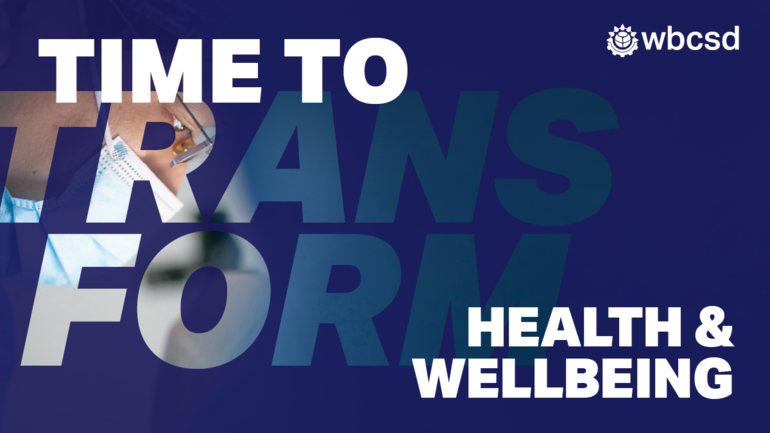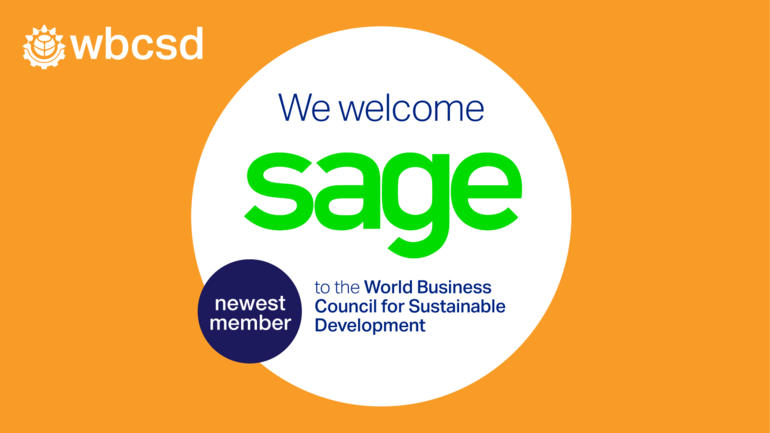Geneva, 22 April 2021: In times of extreme uncertainty and rapid digitalization, closing the gap between the supply and demand of skills and ensuring people have the right skills to be employable and perform their work well, is more challenging than ever. To help business leaders better understand how a strong skills development strategy creates business value while simultaneously generating positive value for people and society, today, the World Business Council for Sustainable Development (WBCSD) and the Global Apprenticeship Network (GAN Global) launched a guide for Chief Human Resource Officers (CHROs) on skills strategies for a sustainable world of work.
New technologies, socio-economic developments, shifting expectations of workers and disruptive events like COVID, are placing the world of work in a state of constant flux. Without the right skills, workers, in particular those from disadvantaged groups (women, young, ethnic minorities, low-skilled workers), will find it more and more difficult to find the work they need to earn a living for themselves and their families, fulfill their aspirations and ultimately live well. Even before COVID, business leaders were concerned about finding, keeping, and developing the talent needed for the modern world, and as we begin to recover from the pandemic, many businesses will lack the relevant skills needed to succeed in the new world of work. This brings Human Resource (HR) executives into the ‘eye of the storm’, reinforcing their strategic role in ensuring business continuity, resilience and growth while contributing to a future where both business and society don’t just react and adapt to disruption, but thrive.
As part of its Future of Work project, WBCSD partnered with GAN Global to understand why business action on skills development is important not just to deliver on business objectives, but also to achieve a more cohesive and equal society. WBCSD and GAN Global explored which types of corporate skills development strategies and pipelines organizations usually rely on, as well as which ones don’t feature as prominently in their workforce strategies, and set out to help companies assess how to choose the most appropriate strategy to respond to business and societal needs.
Summarizing the guide’s purpose, Filippo Veglio, Managing Director People & Society at WBCSD said: “Work is the engine at the center of our economies and skills are its most important ingredient. This guide brings to life the importance of skills development strategies in future-proofing businesses while simultaneously creating a more sustainable future of work.”
Building on interviews with HR professionals and real-life case studies from over 16 organizations, the guide aims to inspire CHROs and HR decision-makers more broadly to strengthen their companies’ skills development approach by presenting a wide range of effective skills strategies and by increasing CHRO’s awareness of the various pipelines – in particular less well-known ones - that they can activate to develop and attract talent.
The guide sketches a number of actions that CHROs can take to set their companies on a path to developing skills strategies for the new world of work:
- Think long term about your skills development strategies;
- Analyze your company’s situation and choose the best suited solution(s);
- Empower and engage your employee base;
- Build partnerships and collaborate;
- Develop programs that promote diversity, inclusion and access.
Nazrene Mannie, Executive Director, GAN added: “GAN Global is a proud contributing partner to the CHRO Guide: Skills strategies for a sustainable world of work. As a global, business-driven alliance through which private sector companies, development organizations and thought-leaders work together to drive the future of work agenda, we see the CHRO guide as a valuable tool offering practical advice and examples of best practice from leading organizations across the world.”
Following the launch of this guide, WBCSD and GAN invite companies to join the discussion, share their challenges and solutions to skills development with their peers and elevate the role of forward-looking skills development in their engagement with employees and future talent, business partners, education providers and other stakeholders.
More information
WBCSD’s Future of Work Project brings together companies and partner organizations to explore and develop collaborative solutions in the areas of Technology & Work, Diversity & Inclusion as well as Workers’ Health and Wellbeing.
16 WBCSD members are engaged in the Future of Work Project: Ayala, Charoen Pokphand (C.P.) Group, Equinor, Microsoft, Nestlé, NRI, OCP Group, Philip Morris International, Philips, Pirelli, PwC, Sabanci, Solvay, Sonae, The Navigator Company and Total.
James Gomme, Director, People & Society, WBCSD








